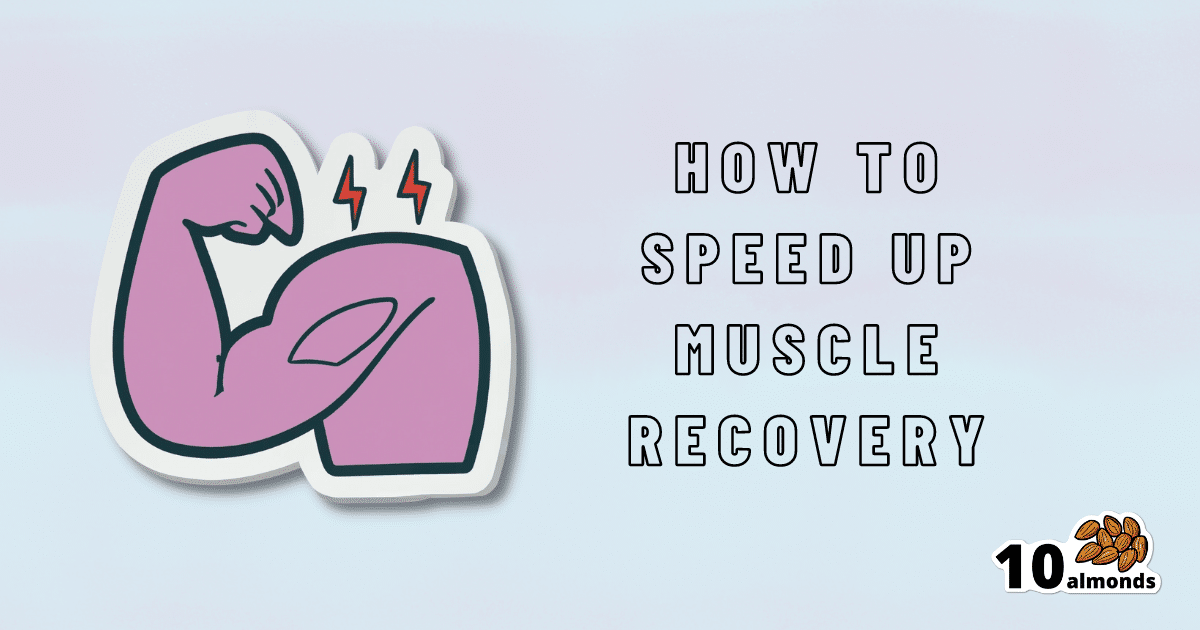Overdone It? How To Speed Up Recovery After Exercise
How to Speed Up Recovery After a Workout: Stretching may not help, but contrast bath therapy, protein intake, and hydration can aid in muscle recovery. Avoid alcohol and prioritize rest and sleep.

How To Speed Up Recovery After A Workout (According To Actual Science)
Has your enthusiasm ever been greater than your ability, when it comes to exercise?
Perhaps you leapt excitedly into a new kind of exercise, or maybe you made a reprise of something you used to do, and found out the hard way you’re not in the same condition you used to be?
If you’ve ever done an exercise session and then spent the next three days recovering, this one’s for you. And if you’ve never done that? Well, prevention is better than cure!
Post-exercise stretching probably won’t do much to help
If you like to stretch after a workout, great, don’t let us stop you. Stretching is, generally speaking, good.
But: don’t rely on it to hasten recovery. Here’s what scientists Afonso et al. had to say recently, after doing a big review of a lot of available data:
❝There wasn’t sufficient statistical evidence to reject the null hypothesis that stretching and passive recovery have equivalent influence on recovery.
Data is scarce, heterogeneous, and confidence in cumulative evidence is very low. Future research should address the limitations highlighted in our review, to allow for more informed recommendations.
For now, evidence-based recommendations on whether post-exercise stretching should be applied for the purposes of recovery should be avoided, as the (insufficient) data that is available does not support related claims.❞
…and breath! What a title.
Hot and Cold
Contrast bath therapy (alternating hot and cold, which notwithstanding the name, can also be done in a shower) can help reduce muscle soreness after workout, because of how the change in temperature stimulates vasodilation and vasoconstriction, reducing inflammation while speeding up healing:
Contrast Water Therapy and Exercise Induced Muscle Damage: A Systematic Review and Meta-Analysis
If doing this in the shower isn’t practical for you, and you (like most people) have only one bathtub, then cold is the way to go for the most evidence-based benefits:
Whole-Body Cryotherapy in Athletes: From Therapy to Stimulation. An Updated Review of the Literature
Eat protein whenever, carbs after
Eating protein before a workout can boost muscle protein synthesis. Be aware that even if you’re not bodybuilding, your body will still need to do cell replacement and repair, including in any muscle tissue that got damaged* during the workout
If you don’t like eating before a workout, eating protein after is fine too:
Pre- versus post-exercise protein intake has similar effects on muscular adaptations
*Note: muscle tissue is supposed to get damaged (slightly!) during many kinds of workout.
From lactic acid (that “burn” you feel when exercising) to microtears, the body’s post-workout job is to make the muscle stronger than before, and to do that, it needs you to have found the weak spots for it.
That’s what exercise-to-exhaustion does.
Eating carbs after a workout helps replace lost muscle glycogen.
For a lot more details on optimal nutrition timing in the context of exercise (carbs, proteins, micronutrients, different kinds of exercise, etc), check out this very clear guide:
International society of sports nutrition position stand: nutrient timing
Alcohol is not the post-workout carb you want
Shocking, right? But of course, it’s very common for casual sportspeople to hit the bar for a social drink after their activity of choice.
However, consuming alcohol after exercise doesn’t merely fail to help, it actively inhibits glycogen replacement and protein synthesis:
Also, if you’re tempted to take alcohol “to relax”, please be aware that alcohol only feels relaxing because of what it does to the brain; to the rest of the body, it is anything but, and also raises blood pressure and cortisol levels.
As to what to drink instead…
Hydrate, and consider creatine and tart cherry supplementation
Hydration is a no-brainer, but when you’re dehydrated, it’s easy to forget!
Creatine is a very well-studied supplement, that helps recovery from intense exercise:
Tart cherry juice has been found to reduce muscle damage, soreness, and inflammation after exercise:
Wondering where you can get tart cherry powder? We don’t sell it (or anything else), but here’s an example product on Amazon.
And of course, actually rest
That includes good sleep, please. Otherwise…
Effects of Sleep Deprivation on Acute Skeletal Muscle Recovery after Exercise
Rest well!
Share This Post
Learn To Grow
Sign up for weekly gardening tips, product reviews and discounts.




